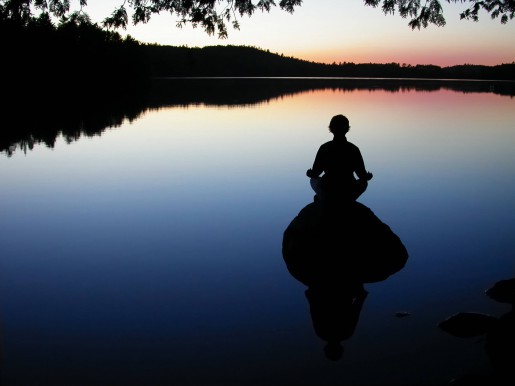
The wind blows hard among the pines
toward the beginning
of an endless past.
Listen: you’ve heard everything.

The wind blows hard among the pines
toward the beginning
of an endless past.
Listen: you’ve heard everything.

The practice of true reality is simply to sit serenely in silent introspection. When you have fathomed this you cannot be turned around by external causes and conditions. This empty, wide open mind is subtlety and correctly illuminating. Spacious and content, without confusion from inner thoughts or grasping, effectively overcome habitual behavior and realize the self that is not possessed by emotions.
You must be broad-minded, whole without relying on others. Such upright independent spirit can begin not to pursue degrading situations. Here you can rest and become clean, pure, and lucid. Bright and penetrating, you can immediately return, accord, and respond to deal with events.
Everything is unhindered; clouds gracefully floating up to the peaks, the moonlight glitteringly flowing down mountain streams. The entire place is brightly illumined and spiritually transformed, totally unobstructed and clearly manifesting responsive interaction like box and lid or arrow points meeting.
Continuing, cultivate and nourish yourself to enact maturity and achieve stability. If you accord everywhere with thorough clarity and cut off sharp corners without dependence on doctrines, like the white bull or wildcat helping to arouse wonder, you can be called a complete person.
So we hear that this is how one of the way of non-mind acts, but before realizing non-mind we still have great hardship.

Put aside the
crazy and false mind that
has been concocting your knowledge
and understanding, and make it so that
nothing whatsoever is weighing
on your mind.

In the changing of
the constellations, we study the
criterion of the universe; in the alteration
of clouds and rain, we see clearly the
harmony of nature.
Tao is a mysterious
presence; it eludes the sharpest
tracker. Acquiring knowledge of the Way
we must return to simple beginnings that come
naturally, like the rules of music. As the mists
lift and the stars usher forth the moon,
we see the true path all
around us.

In fellowship with others,
embody the principles of the Sage.
This hexagram addresses the proper basis for relationships with others. It generally comes as a sign that some kind of self-correction is in order in this arena.
Proper relationships, whether in love, work, family, or friendship, must be founded on and conducted under proper principles in order to succeed. Our model for how to behave with others is the Sage: in relating we are obliged to practice kindness, humility, correctness, equanimity, and openness. Wherever we depart from these we lose the aid of the Higher Power and risk and encounter with misfortune.
The fundamental rule of the I Ching for the conduct of relationships is that they take place in the open. This means that every facet of a relationship should be seen as fair and correct by everyone concerned, not just yourself. It also means that it is improper to enter into or continue in relationships with unspoken reservations or hidden intentions.
Exceptional things can be accomplished by those who come together correctly in fellowship now under the guidance of an enlightened leader or leaders. Seek that role by patterning yourself after the Sage. Meet others halfway in a spirit of sincerity and receptivity. Give trust where it is due; where it is not, do not resort to harshness – reserve and reticence are adequate measures. Avoid the formation of factions and cliques, and correct your errors in relationships as soon as you become aware of them. In this way you can accomplish magnificent deeds now.
The I Ching, or Book of Changes
Hexagram 13, T’ung Jen / Fellowship with Others
ebooks & apps of the Tao the Ching, I Ching,
Hua hu Ching, and Art of War for
You
can now buy
the I Ching as part of a
five-app bundle of Taoist classics
for iPhone or iPad for less than
the cost of one hardcover
book.
